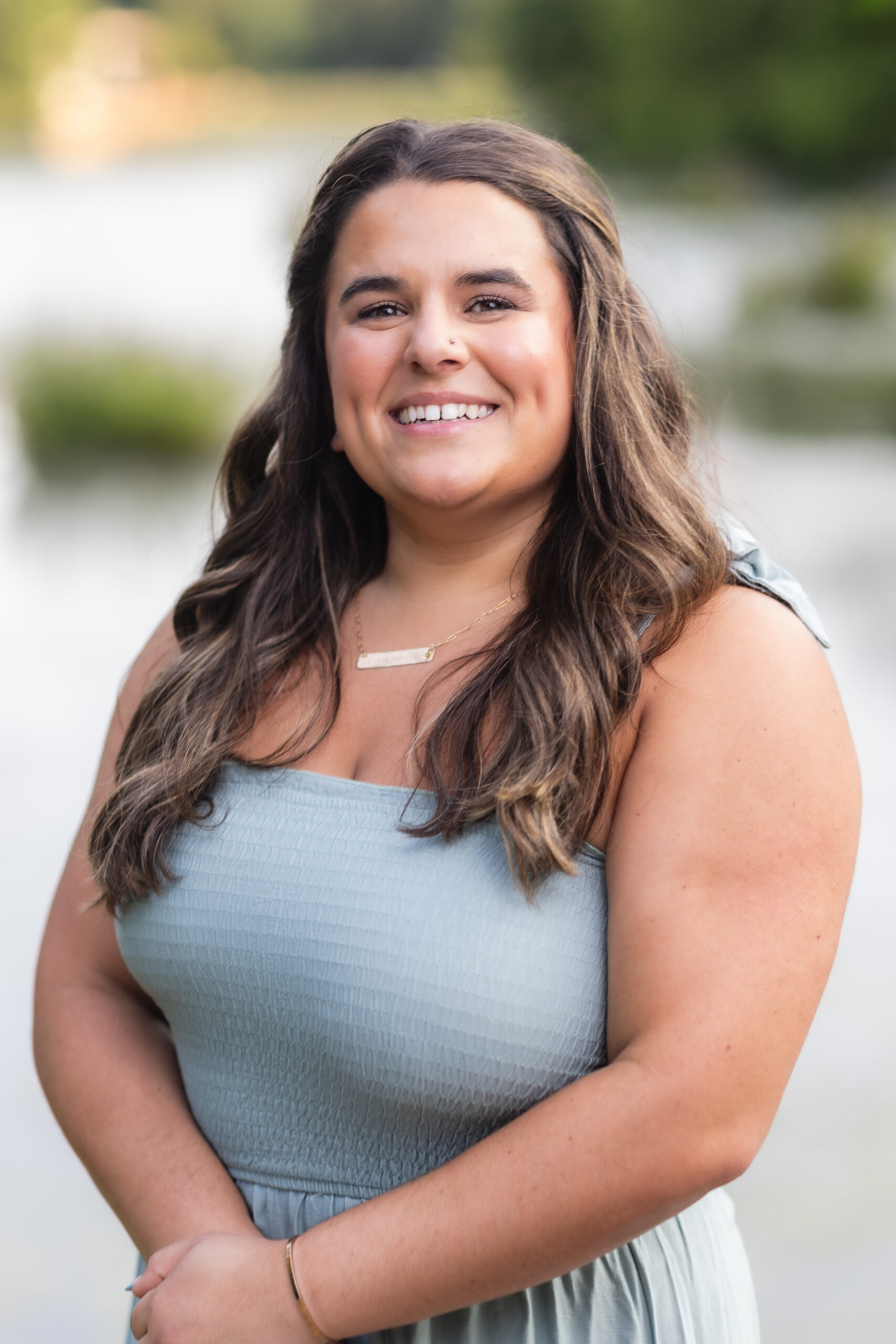As a human being, regardless of your profession, whether you have children or not, you have likely or will likely encounter someone with an eating disorder. If you suspect that your loved one might be struggling, it is important to be able to recognize the signs of an eating disorder. And to approach the conversation in a beneficial way. This isn’t something that’s talked about in parenting books. Or something you expect to have to discuss with a friend, family member, or partner. The first conversation you have with your loved one could be the one that gets them started on their path to recovery. In this blog, we will cover how to help a family member with an eating disorder in a few different situations.
Situation 1: You suspect a loved one may have an eating disorder
“I don’t know much about eating disorders, but I think my loved one might have one. What should I say?”
If you suspect a loved one might have an eating disorder, and they are not aware of the issue, this is a tricky spot to be in. On one hand, you want to get your loved one the help they need and deserve. And on the other hand, you don’t want to rock the boat and might be worried about saying the wrong thing. Or how it might impact your relationship with your loved one. All are valid.
The best way to approach this is with curiosity. Ask questions and listen without judgment. Find a private time to talk to them. And do it away from meal times or other times of high stress. Open up a line of communication, let your loved one know they can talk to you. Validate your loved ones feelings, even if you might not fully understand them.
Be prepared for your loved one to possibly resist, deny and push back. Using “I” statements to express your concerns for your loved one will go further than using “you” statements. “You” statements can imply blame. Eating disorders are not your loved ones fault. And they did not choose this. They might not be ready to hear the word “eating disorder” right off the bat either. You know your loved one best, and can use your own judgment with them when choosing how to express concern. But what we want to be sure to avoid is placing blame, or using labeling or judgemental language. Terms like “anorexic”, “bulimic”, “overweight” and “obese”, amongst others, are not helpful to use.
3 Ways to Address a Loved One in This Situation
Addressing concerns with your loved one might sound something like this:
“I noticed that you have been stressing a lot more about food choices, especially at restaurants. It makes me feel a bit worried. Can we talk more about it?”
“I noticed that you’ve been eating less of your favorite foods lately. Maybe you’re getting tired of them and want me to get something different, and if that’s the case, please tell me. I also wanted to check in to see if there was anything else going on that might be contributing to this change?”
“I’ve noticed you’ve seemed a bit down and not spending as much time with friends these past few weeks. How are you feeling? I want you to know that I’m here to listen and that I care about you.”
Situation 2: Your loved one tells you that they are struggling with food and body image
“My child confided in me about their disordered eating patterns. I want to help them, but I don’t know much about eating disorders. What should I say?”
If your loved one chose you to confide in about their disordered eating habits, this says a lot about the relationship and trust you have with this person. And this can go a long way. If a loved one opens up to you about their eating disorder, you can start by thanking them for trusting you with that information. Recognize their bravery and vulnerability in sharing something that is probably really scary for them. Validate their experience. Truly listen and let them know that you believe them. And are here to support them.
Even eating disorder professionals are worried about saying the wrong thing. So it makes sense if this is a fear of yours, too. As a parent or caregiver, you might often feel pressure to “fix” things. Sometimes, your loved one just needs to feel heard. And does not need or want a “fix” at that moment. This pressure can get in the way of some really meaningful, powerful conversations. You are a human; you will say things wrong. And you will not get through to everyone. But switching from a mindset of trying to fix things to trying to understand your loved one can make a world of difference.
Saying things like “let’s do ___ together” or “I’m here for you and I’m not going anywhere” can be super impactful. Opening up about disordered eating takes a lot of courage. Having a trusted person and a support system to navigate it with them can make it feel even a little bit easier. It’s okay to not have all the answers. This is when having a team of trusted eating disorder professionals: a therapist, a dietitian and a doctor, can be helpful. Not only for your loved one, but also for you as you navigate how to support them.
3 Ways to Address a Loved One in This Situation
“I’m really glad you felt safe enough to tell me that. It sounds like you’ve been going back and forth with how to tell me. That was really brave of you to share. I am here for you and am not going anywhere. Let’s work together to try to find you the care and support you need with people you feel a connection with.”
“Thank you for sharing something so vulnerable with me. I know that could not have been easy and I’m really glad you felt you could lean on me for support. I’m not mad at you, and I am here to listen if there is anything else you’re ready to share.”
“This takes a lot of courage to talk about. Your feelings are valid and this doesn’t change how I feel about you or how much I love you. I am here to listen and support however I can. You are not alone in this”
Situation 3: You’re loved one is getting treatment for an eating disorder and is struggling
“My loved one is in treatment and I’m trying to be supportive and help in any way I can, but they keep saying that I don’t get it and I’m not helping.”
It can feel very defeating when you are trying your best to help and be supportive, to then be told it’s not enough or not helpful. This can sometimes lead to feelings of resentment, or feelings of giving up and throwing in the towel. And that is the opposite of what your loved one needs. Start by validating your loved one’s feelings. And remember, validating their experience is not the same thing as agreeing with them. So often, people struggling with eating disorders just need to feel heard. While behavior change is necessary and important in eating disorder treatment, people are a lot more likely to engage in behavior change when they feel heard, understood and supported, rather than forced.
It can be helpful to ask your loved one what makes them feel supported, and how they would like you to show support. This answer might be different than you’d expect. Ask them questions to better understand their point of view, where they’re coming from, and what feels helpful for them. And reflect back what they said to you and what you heard. This gives them a chance to tell you you got it right, or correct you and share what they are actually feeling. If giving a suggestion or advice feels appropriate, ask your loved one before doing so. And respect if their answer is no.
3 Ways to Address a Loved One in This Situation
“You’re right, I do not understand exactly what you’re going through. I am trying to help and I realized that might not be how you’re perceiving it. What can I change to be a better support for you?”
“I do not know what it’s like to have an eating disorder, and I can only imagine how challenging recovery is for you. I see you working hard and I’m really proud of you. I know that I will never fully understand, but I’d love for you to share things that I can do that will feel supportive to you. I’m here and I’m listening.”
“I appreciate you sharing your perspective with me. I’m hearing you say that it’s helpful for me to sit and have meals with you, but that it is not helpful if I ask you questions about food while we’re eating and instead, talk about other things. Did I hear that right?”
Final Thoughts on Helping a Loved One with an Eating Disorder
Thank you for reading our resource on how to help a family member with an eating disorder. Treating eating disorders is not a one person job. It is best done as a collaborative team involving a medical doctor, therapist, psychiatrist and dietitian. But you absolutely cannot forget the integral role of one’s support system. Each member of the treatment team has their own role and their own unique way of supporting your loved one in their recovery journey. And while you as the support person might not be an eating disorder expert, you are the expert at caring for and loving your loved one. And that love and support speaks volumes. It could be what allows your loved one to feel brave enough to choose the path of recovery.
Contact Us
Courage to Nourish is a group of eating disorder specialized dietitians. We have in person locations in Alexandria, Virginia, Columbia, Maryland and College Park, Maryland. We offer virtual services across the state of Virginia, Washington DC, Pennsylvania, and Colorado. We offer individual nutrition therapy. As well as support groups. We would love to guide you in building a better relationship with food.
Contact us for more information. And to schedule a discovery call. Also, sign up for our client or clinician newsletter!
Interested in a support group? Courage to Nourish offers a weekly virtual ED Recovery Support group. This group is free of charge! Email lauren.garcia@couragetonourish.com to find out more information!
Take one of our eating disorder quizzes:

Kathryn is a weight-inclusive, anti-diet eating disorder dietitian at Courage to Nourish. She specializes in working with adolescents and families, athletes, and individuals recovering from ARFID. Kathryn sees clients in person at the Columbia, Maryland office and virtually throughout Virginia, Pennsylvania, DC, and Maryland. To schedule a discovery call with Kathryn, click here.

